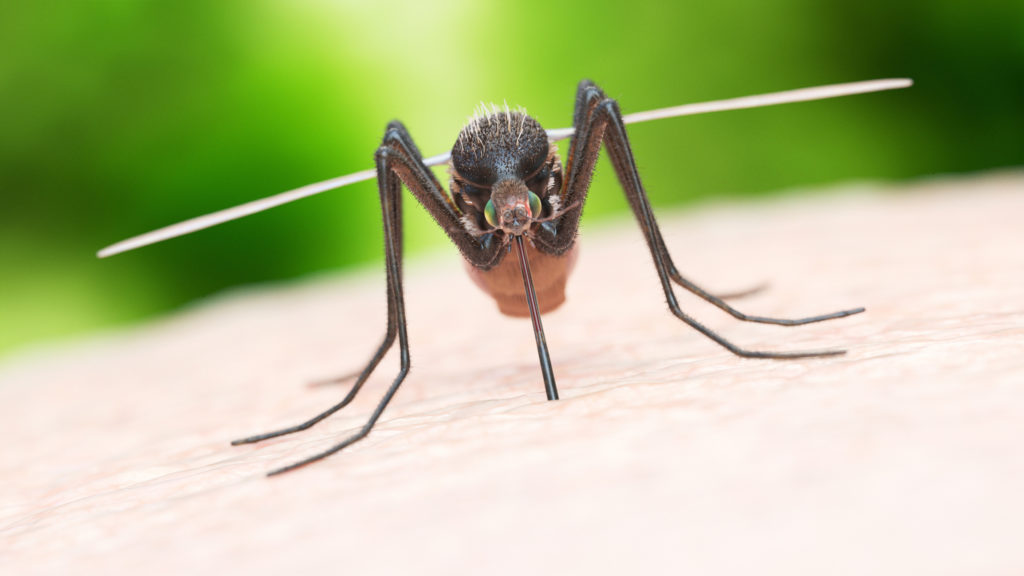
Most people have had mosquito bites at some time in their life. But as summer begins and lockdowns lift, Americans can add another threat to their list of health worries: Eastern equine encephalitis (EEE), a potentially lethal brain infection caused by a mosquito-borne virus.
Only female mosquitoes bite. Warm temperatures, light, body odor, and sweat are some things that make you a mosquito target.
The Centers for Disease Control and Prevention (CDC) issued a warning to watch out for these EEE's.
Richard Pollack, PhD, senior environmental public health officer at Harvard University in Cambridge, Massachusetts, warns that in the past, enhanced EEE activity has come in waves of two to three years, with the risk diminishing for about a decade or so in between.
“If the virus is reading the playbooks from past years, this may be year two of a two- to three-year cycle,” Pollack says. “But viruses don’t read, so it may not necessarily respond in the same manner as in the past.”
People living in the Northeast and South, especially, may want to be on the alert. Infections showed up last year in Alabama, Connecticut, Georgia, Indiana, Massachusetts, Michigan, New Jersey, North Carolina, Rhode Island, and Tennessee. Historically, Florida and New York have also seen cases of EEE, according to the CDC.
Unlike the flu and COVID-19, this virus is not transmitted through human contact but via mosquito bites. While the disease may not appear in humans until the fall, states are already testing their mosquito populations for signs of the virus. “It is too early [for people to get sick] in New England,” says Dr. Pollack, “but Massachusetts has begun monitoring.”
Factors to Look out for This Season
The lifting of coronavirus restrictions could mean more people rushing outside and choosing hiking, camping, and beach vacations over city trips, increasing the number of individuals who may be exposed to infected mosquitos. Experts believe this has already led to a bump in tick-related Lyme disease. If that is any indicator, the same could hold true for mosquito-borne EEE.
Researchers are worried that with everyone focusing on the consequences of COVID (as they should), they’re forgetting about other health risks — like EEE.”
Pollack adds that possible contributing factors may include a new strain of virus that could be stronger and more readily transmitted changes in climate that may have enhanced mosquito abundance and longevity, and changes in the landscape that may have enhanced habitats for mosquitoes, such as higher water tables in white cedar swamps or in cattail wetlands.
Why It's So Deadly
The virus typically produces symptoms of fever, headache, irritability, restlessness, drowsiness, loss of appetite, vomiting, and diarrhea. Signs of illness usually appear 4 to 10 days after a person is bitten by an infected mosquito. In milder cases, the body fights the virus off, and the illness resolves itself in one to two weeks, according to the CDC.
But in severe cases, EEE can cause a lethal brain infection. The CDC estimates that about 30 percent of those who contract EEE die, and many of those who survive suffer from chronic neurological problems and brain damage, which may leave them with disabilities.
“EEE likely has one of the highest mortality rates of viruses in North America,” says Pollack. “Those who do survive can be significantly burdened for the rest of their lives.”
Dr. Schaffner stresses that the infection can be “very nasty.” He explains, “Once you get bit, the virus has an attraction to the central nervous system, in particular the brain. When it finds its way there, it begins to destroy the cells of the brain.”
The disease can produce a progressive stupor that leads to a coma. A patient may suffer from convulsions and general muscular spasms.
There is no cure or treatment for the disease.
How To Protect Yourself
Although infected mosquitoes spreading EEE are not a health threat on par with the coronavirus, health officials recommend that individuals and communities take action now to head off trouble.
Because mosquitoes often breed in standing, stagnant fresh water, Rich suggests that people empty out any planters, old tires, bird baths, old toys, or other receptacles that may be holding water.
Dr. Schaffner advises residents to look up: “Check out your rain gutters. If they don't have a good pitch and actually drain, they can pool water and mosquitoes can breed there.”
In areas where infected mosquitoes have been detected, public health officials advise residents to wear long-sleeved shirts and pants, as well as use mosquito repellent with the active ingredient DEET. Rich recommends the insecticide permethrin because, he says, it kills mosquitoes whereas DEET simply repels them.
People may also want to avoid going out at dawn and dusk when mosquitoes tend to be more active.
Last year, several communities that detected infected mosquitoes launched large-scale pesticide spraying efforts.
“These pesticides have pretty good safety profiles, and they’re usually sprayed in off-hours when people are less likely to be outside,” says Rich.
Other Mosquito Bites
For a general mosquito bite; it may be tough advice, but leave the bite alone. When you scratch, it creates openings in your skin that let bacteria in and cause infection.
To relieve the itch and lower your chances of an infection:
Wash the area with soap and water.
Apply calamine lotion or anti-itch cream.
Put an ice pack on the bite.
Take an over-the-counter antihistamine.
Raise the area of the bite to reduce and prevent swelling.
If a bite causes fever, vomiting, or shortness of breath, call 911 or go to an emergency room immediately.









